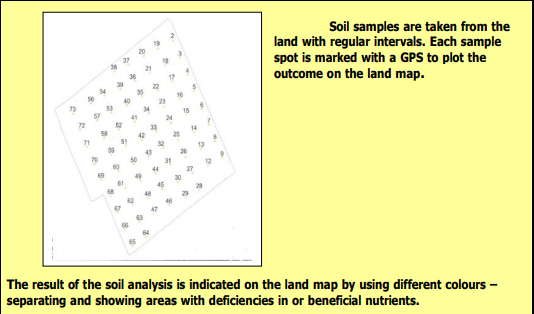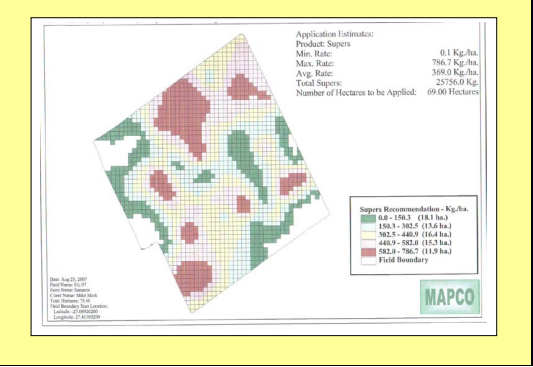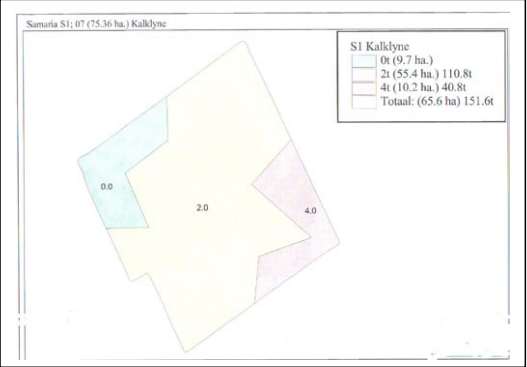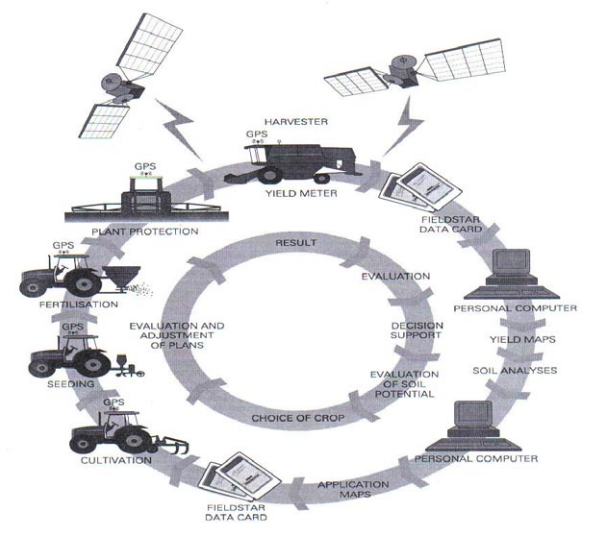Precision farming is the use of modern technology - to collect data regarding the soil, environment and production - where the application of inputs is needed and thereby saving costs. The following example can explain this concept.


Planting equipment or fertiliser spreaders are fitted with sensors that interpret the information to adjust the application according to the land’s fertiliser status or pH status. This ensures that shortages are addressed but also bring about a saving in the quantity of fertiliser applied. All the info collected provides the farmer with a clear picture and exact situation on the farm and enables him to determine the plant density and fertiliser application according to the soil and the expected yield.

The map will also indicate areas where lime must be applied, saving input costs as specific areas receive different applications and not one application for the land as a whole. When the crop is planted and sprayed, the information is also recorded and saved.
Precision farming also includes soil moisture sensors and climatic data collectors for irrigation areas to assist with the scheduling of irrigation.
